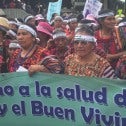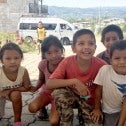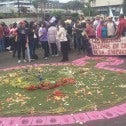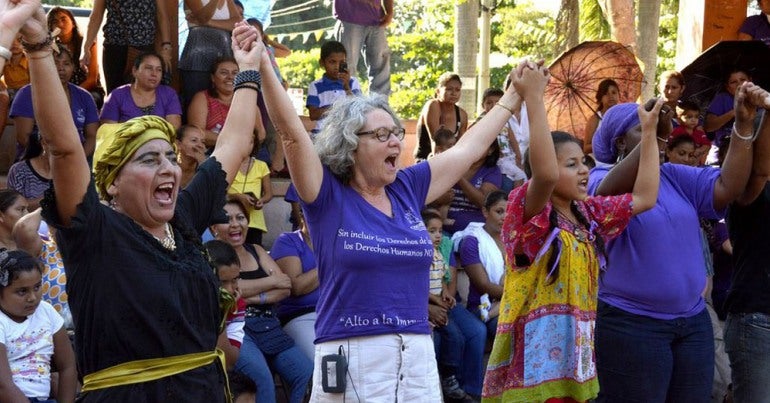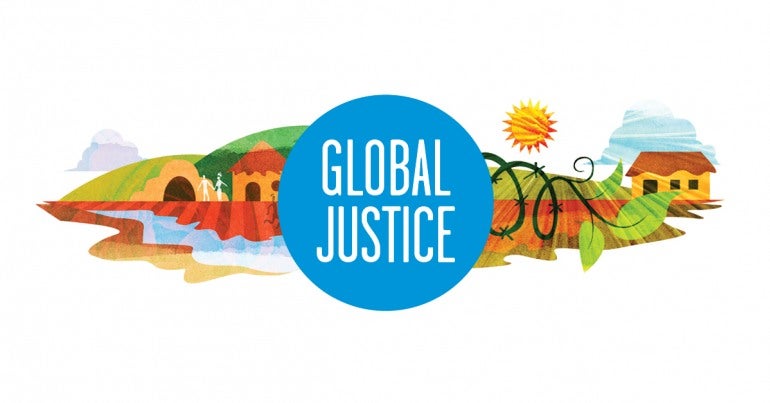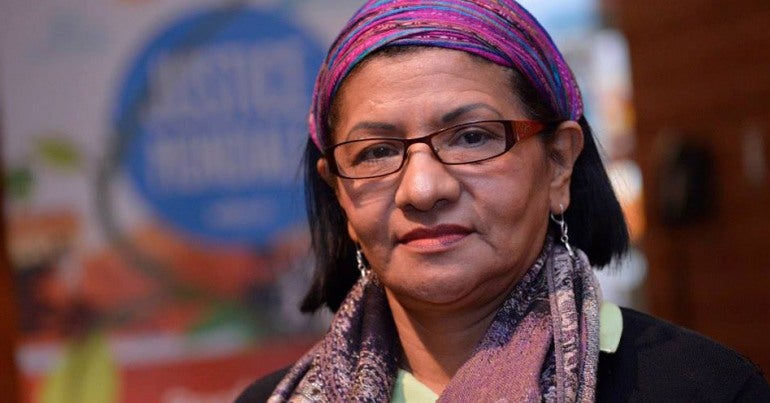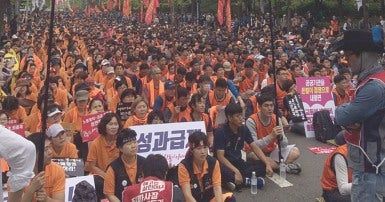 If you follow the news and world events regularly you are no doubt feeling like the world is a dangerous place. News outlets are regularly reporting on the inflammatory racist rhetoric of US President Donald Trump. We hear about violent attacks on the Syrian people, or about the dangerous migratory journeys of workers from the Global South. The backdrop to this constant barrage of bleak news is the emergence of resistance movements. Whether it is the mass mobilization of workers in opposition to corruption in South Korea, or the mobilization of Americans declaring “No Muslim Ban,” resistance is growing.
If you follow the news and world events regularly you are no doubt feeling like the world is a dangerous place. News outlets are regularly reporting on the inflammatory racist rhetoric of US President Donald Trump. We hear about violent attacks on the Syrian people, or about the dangerous migratory journeys of workers from the Global South. The backdrop to this constant barrage of bleak news is the emergence of resistance movements. Whether it is the mass mobilization of workers in opposition to corruption in South Korea, or the mobilization of Americans declaring “No Muslim Ban,” resistance is growing.
We are living in a time of economic crisis. Oxfam reported in January 2016 that eight men own the same wealth as the 3.6 billion people who make up the poorest half of humanity. It is this drive to accumulate wealth that is at the root of most of the world’s problems today.
If we pay attention to what is happening in the news and how elected governments operate, we notice that the rich and their proxies have set the stage for the general population to be distracted with sensational stories that cause us to fight among ourselves. These fights center on race, religion and fear of each other, so we never gain the power required to address the obscene inequality we experience daily.
If migrants are “stealing our jobs,” “racialized immigrants are criminals,” and countries like the US and Canada must “save the people from dictators in other countries,” how will we ever unite to confront the people who profit from starvation and war, inequality, precarious work, migration and crime?
In our capitalist society, people’s real needs come second to the requirements of profit. In effect our society relies on distraction, division and discrimination so that the broader issues of equality and equity are not meaningfully addressed.
Worker-to-worker solidarity is a strategy and a solution to challenge this paradigm.
We are living in a time of crisis but also a time of resistance. CUPE has engaged in worker-to-worker solidarity across borders using the Global Justice Fund for decades. Members have supported and engaged with trade unions and social movements in Colombia, the Philippines, Burma, Cuba, Honduras, Nicaragua, and South Africa at critical moments in their history, and continue to do so in several countries today.
Communities and unions working together have developed relationships and are challenging privatization, contracting-out, and defending Indigenous land and territory against theft from corporate interests.
Workers are organizing unions with very few resources and under conditions of violence and repression. Women workers in Nicaragua and Honduras with precarious jobs protest regressive labour reform and defend occupational health and safety reform at work. Workers and their communities in the Philippines support initiatives that address the root causes of poverty through national peace negotiations and political transformation. We have a great deal to learn from our partners around the globe.
The Global Justice Fund is available for CUPE members who would like to create opportunities for their local, their division, CUPE council or committee to engage in solidarity where critical global struggles are happening in the world today. We encourage members to participate in the fund; if you have an idea to pitch or a global connection to share please don’t hesitate to contact us.
Worker-to-worker solidarity allows for critical exchange and learning with activists struggling in other countries. It is an opportunity to provide necessary material and financial support for the organizing efforts of our sisters and brothers. When we talk to workers and activists in other countries we are better able to understand what is happening in the world, better equipped to challenge discrimination when we are faced with it in our workplaces and communities, and we build the power necessary to create the world we want to live in.



